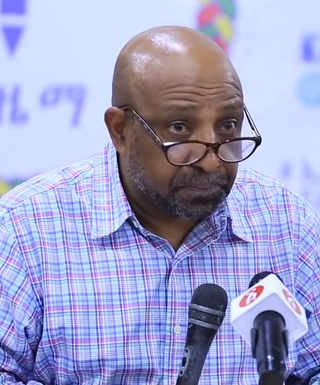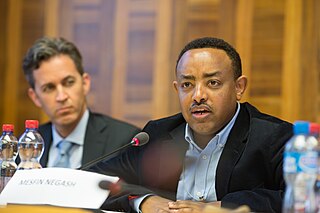Related Research Articles

The Daily Mirror is a British national daily tabloid newspaper. Founded in 1903, it is owned by parent company Reach plc. From 1985 to 1987, and from 1997 to 2002, the title on its masthead was simply The Mirror. It had an average daily print circulation of 716,923 in December 2016, dropping to 587,803 the following year. Its Sunday sister paper is the Sunday Mirror. Unlike other major British tabloids such as The Sun and the Daily Mail, the Mirror has no separate Scottish edition; this function is performed by the Daily Record and the Sunday Mail, which incorporate certain stories from the Mirror that are of Scottish significance.

The Jewish Chronicle is a London-based Jewish weekly newspaper. Founded in 1841, it is the oldest continuously published Jewish newspaper in the world. Its editor is Jake Wallis Simons.
The mass media in Kazakhstan refers to mass media outlets based in Kazakhstan, a Central-Asian country that gained independence after the Dissolution of the Soviet Union, in 1991. The Constitution of Kazakhstan guarantees freedom of press, but privately owned and opposition media have been subject of censorship. In 2004 the International Federation of Journalists identified a "growing pattern" of intimidation of the media, and in 2012 several opposition media outlets were ordered to be shut down on charges of promoting "extremism".

Malaysiakini is an online news portal in Malaysia which was established in 1999. It is published in Malay, English, Chinese and Tamil, and is among the most read news portals in Malaysia.

General elections were held in Ethiopia on 15 May 2005, for seats in the House of Peoples' Representatives and four regional government councils. Under pressure from the international community, Prime Minister Meles Zenawi promised that this election would be proof that more democracy would come in this multi-ethnic nation; international elections observers from the European Union (EU) and the U.S.-based Carter Center were present to observe the results. This election succeeded in attracting about 90% of the registered voters to the polls. A government ban on protests was imposed throughout the election period.

Berhanu Nega is an Ethiopian politician who is serving as the current Minister of Education since 2021. He previously was the mayor elect of Addis Ababa, Ethiopia, in the 2005 Ethiopian general elections. He is a founding chairman of the Rainbow Ethiopia: Movement for Democracy and Social Justice and a Deputy Chairman of Coalition for Unity and Democracy (CUD), for whom he served as chief election campaign strategist. He is also the co-founder and leader of Ginbot 7, an anti-government rebel group. Until mid-2018, he was labelled a terrorist by the Ethiopian government.

According to the U.S. Department of State's human rights report for 2022, there exists "significant human rights issues" in Ethiopia. In addition to extrajudicial killings and instances of "enforced disappearance", other human right issues in Ethiopia include arbitrary arrest, the censorship and unjustified arrests of journalists, the use of child soldiers, and more.
Articles related to Ethiopia include:
Abiye Teklemariam Megenta, also known as Abiye Teklemariam, is an Ethiopian print and radio journalist who co-founded the defunct Addis Neger, which was the largest private newspaper in Ethiopia before its closure in December 2009. Three top editors of the newspaper quietly slipped out of the country, accusing the Ethiopian government of relentless intimidation, harassment and persecution. Abiye, who was the newspaper's executive editor, had left the country two months earlier for the United Kingdom. On a BBC interview, he staunchly defended the decision of his colleagues to leave the country, claiming that the government's plan to bring charges against the newspaper's top editors made their tasks impossible to carry out. Presently, he is a vocal democracy activist and a student in Oxford, England.
Yeroo was the first private Afaan Oromo newspaper published in Qubee. It distributed weekly newspapers mainly around the cities and towns of the Oromia region of Ethiopia. Alongside another independent newspaper URJII, Yeroo was the last private Oromo press closed down due to media restrictions in Ethiopia. Due to being independent, the media faced difficulties from the Ethiopian government since its beginning during its registration and establishment. A few weeks after its publications, security problems and financial restrictions imposed by the government caused the newspaper to be suspended. Its website version is Jimma Times (JT), which has remained online after Yeroo newspaper was closed. JT has been the first media to break several news stories before other media outlets, including the story of former Ethiopian PM Tamrat Layne, who became "born again" and left politics, the acceptance of Ethiopian Airlines into the Star Alliance as well as on the decision of the top opposition party Medrek to seek a re-run of disputed Election 2010. Various international media have used news content from Yeroo's Jimma Times, including United Press International (UPI), Epoch Times and Voice of America (VOA) radio. The Jimma Times has also been quoted by and its content used by many Ethiopian newspapers and sites including Capital Ethiopia, Addis Neger, Gadaa.com, Opride.com, Ethio Channel, Awramba Times and African Monitor. Its website/online version has also been suspended for many years after it faced frequent blockage from the government that often censors online media.
Addis Neger was an Ethiopian daily news website published in Maryland, USA, for a worldwide Ethiopian audience. It was the largest metropolitan website available for the Ethiopian diaspora. Founded on August 4, 2006, the site was rated the number one Ethiopian news web site in 2008. However, it was not connected to the popular Addis Neger private newspaper in Ethiopia.

Mesfin Negash is an Ethiopian journalist, political commentator for Addis Neger and columnist for Sampsonia Way Magazine. He is a graduate of Addis Ababa University where he studied political science.

The Sun is a British tabloid newspaper, published by the News Group Newspapers division of News UK, itself a wholly owned subsidiary of Lachlan Murdoch's News Corp. It was founded as a broadsheet in 1964 as a successor to the Daily Herald, and became a tabloid in 1969 after it was purchased by its current owner. The Sun had the largest daily newspaper circulation in the United Kingdom, but was overtaken by freesheet rival Metro in March 2018.

Dawit Kebede is an Ethiopian journalist who spent 21 months as a political prisoner after criticising his country's government in the lead up to the 2005 general election. He was released on a presidential pardon nearly two years later and sought asylum in the United States in 2011. He returned to Ethiopia in 2014. Dawit was awarded the 2010 CPJ International Press Freedom Award for his dedication to journalism.
Ethiopian judicial authority v Swedish journalists 2011 was about the legal proceedings relating to claims that Swedish journalists Johan Persson and Martin Schibbye were supporting terrorism in Ethiopia. Relations between Sweden and Ethiopia were seriously affected by this case. In 2011, Ethiopia was claimed to detain more than 150 innocent people, including reporters. Johan Persson and Martin Schibbye were released in September 2012 as part of a mass pardon, and returned home to Sweden.

Temesgen Desalegn is an Ethiopian journalist. As an editor of the independent weekly newspaper Feteh, Desalegn went to court many times and was imprisoned from 2014 to 2017 as a result of his criticism of the national government, drawing protests on his behalf from the international press freedom groups Committee to Protect Journalists and Article 19 and from Amnesty International. In its 2014 report, the U.S. Department of State also reported its concern against Temsgen's 3 years sentence by the government, emphasizing that Freedom of expression and freedom of the press are fundamental elements of a democratic society and government. The Human Rights Watch also reported his charge in August 2012 and his three years sentence in 2014.

The Zone 9 bloggers are a blogging collective from Ethiopia, who maintain a blog in Amharic. On 25 and 26 April 2014, the Ethiopian government arrested six members of the Zone 9 bloggers network and three other journalists, who faced terrorism charges for their writing at the time. The action had sparked an online protest.

Abiy Ahmed Ali is an Ethiopian politician who is the current Prime Minister of Ethiopia since 2018 and the leader of the Prosperity Party since 2019. He was awarded the 2019 Nobel Peace Prize "for his efforts to achieve peace and international cooperation, and in particular for his decisive initiative to resolve the border conflict with neighbouring Eritrea". Abiy served as the third chairman of the Ethiopian People's Revolutionary Democratic Front (EPRDF) that governed Ethiopia for 28 years and the first person of Oromo descent to hold that position. Abiy is a member of the Ethiopian parliament, and was a member of the Oromo Democratic Party (ODP), one of the then four coalition parties of the EPRDF, until its rule ceased in 2019 and he formed his own party, the Prosperity Party.

Tamerat Negera is an Ethiopian journalist, analyst, and a commentator on Ethiopian politics. He was born in Addis Ababa, Ethiopia to his mother Daditu Tucho Jote and his father Seargent Negera Feyisa Gurara. He is married to Weyzero Selam Belay since 2019.
Democratic backsliding in Ethiopia is ongoing, most notably under the administration of Prime Minister Abiy Ahmed. Since assumption of power in April 2018, Ahmed has played crucial role of reforms in the Ethiopian politics and reversal of policies implemented by the former ruling party, the Ethiopian People's Revolutionary Democratic Front (EPRDF). Abiy immediately gained public approval and international recognition owing to liberalized policymaking including in media outlets, gender equality, internet freedom and privatization of economy. Furtherly, he was also warmly gained accolades for ending 20-years conflict between Ethiopia and Eritrea, from which he awarded the 2019 Nobel Peace Prize, being the first Ethiopian to earn the title. In 2019, Ethiopia received a score of 19 out of 100 in the Freedom in the World metric, a significant improvement from previous years, although it is still characterized as "Not Free". In December 2019, he formed the Prosperity Party by dissolution of EPRDF and merged all its ethnic based regional parties while the Tigray People's Liberation Front (TPLF) refused to obey, resulting intense face-off with the federal government. He promised to hold free and fair upcoming election; although due to COVID-19 pandemic deterioration and other security and logistics issues, the election was postponed indefinitely in mid-2020. Opponents called this action as backdrop to "reconsolidate dictatorship" and "constitutional crisis". On 9 September 2020, the Tigray Regional election were held as the federal government deemed illegal election. According to the electoral commission, the TPLF won 98.2% of 152 seats were contested. The federal government and the Tigray authority relations aggravated by late 2020, culminating the Tigray War.
References
- ↑ ""Addis Neger: Addis"". Archived from the original on 2009-12-31. Retrieved 2009-12-21.
- ↑ "The Art of War on Ethiopia's Independent Press"
- ↑ "Ethiopian editors close paper and flee"
- ↑ "Ethiopia:closure of newspaper"
- ↑ "EU on Addis Neger" [ permanent dead link ]
- ↑ ""U.S. URGES FURTHER ETHIOPIAN ACTION ON HUMAN RIGHTS"". Archived from the original on 2010-05-27. Retrieved 2009-12-13.
- ↑ "Ethiopia’s Meles Says Aid Allegations ‘Outrageous and Stupid’"
- ↑ "Ensuring the Integrity of Elections in 2010: Is Addis Neger’s self-closure part of an anti-government campaign?"